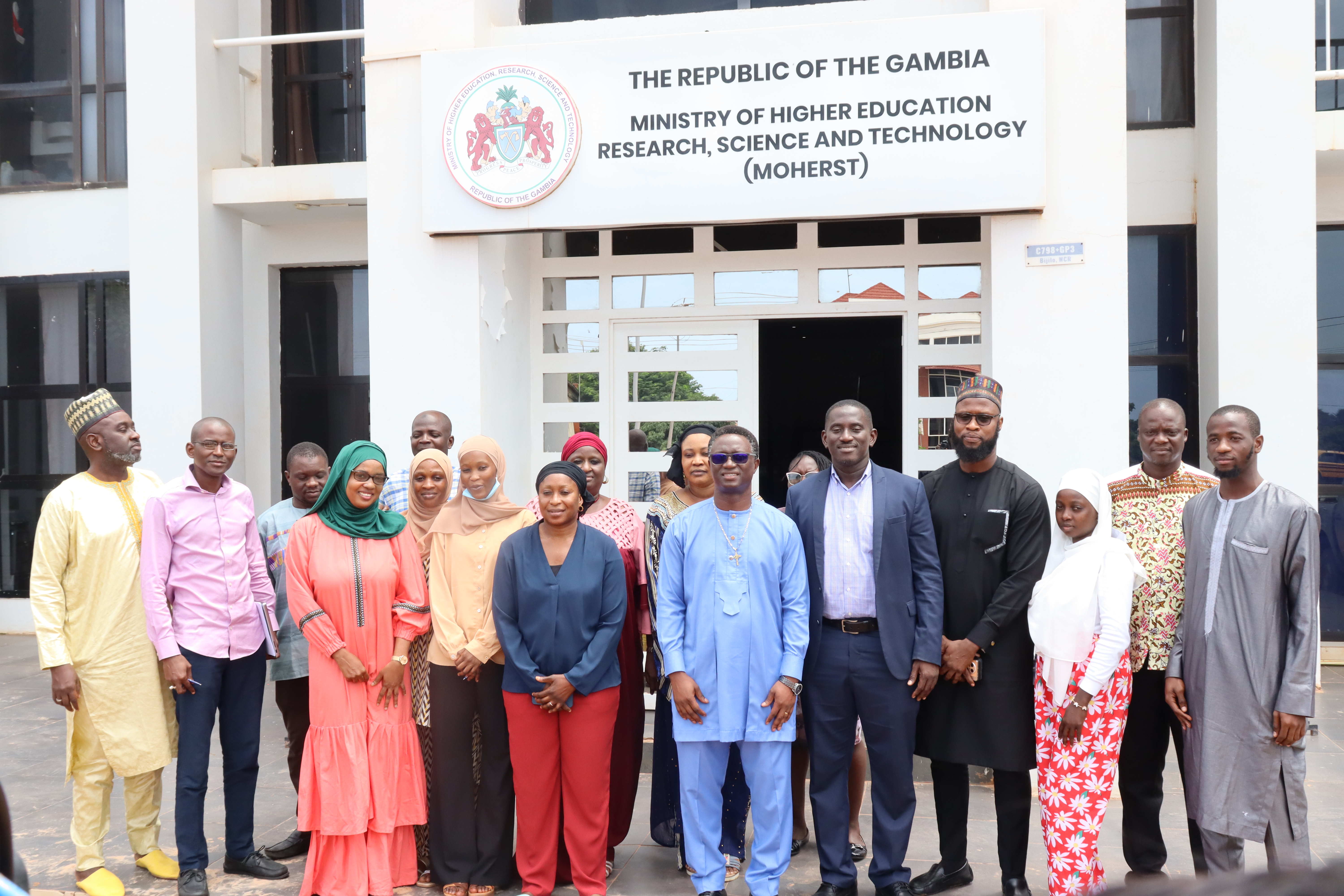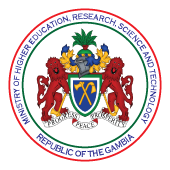
The Ministry of Higher Education, Research, Science and Technology (MoHERST) held a media briefing on Wednesday, September 18, for the World Bank Resilience, Inclusive, Skills and Equity (RISE) study on Madrasa education in The Gambia. Similarly, a media briefing was held for the Commonwealth of Learning (CoL) sponsored Gender Policy Development for Tertiary and Higher Education.
The Honourable Minister of Higher Education, Research, Science and Technology, Prof. Pierre Gomez, said this would be the first time his Ministry will develop strategies for the Madrassah education to be integrated into the tertiary and higher education system. He explained that all this initiative is to ensure the attainment of the transformation agenda articulated by His Excellency President Barrow is implemented without delay. He explained that His Excellency President Barrow is passionate about providing inclusive education to help Gambians get the skill set and the proper enlightenment to take charge of their destiny. He continued that, this way, nobody would be left behind, especially those from the Madrassah type of education.
Prof. Gomez emphasised that as part of the tertiary and higher education transformation agenda, the Madrassah integration would give graduates access to the TVET programmes, giving them equal opportunities as their counterparts in the mainstream educational system. He stated that this will ensure that they are educated enough and well-equipped with the right skill sets and professions to benefit themselves and their families and improve their economic status. In his famous quote, Prof. Gomez stressed that development cannot be delayed or postponed. Thus, he advocates for a less theoretical approach to developing initiatives and calls for more practical actions.
Delivering his welcoming statement, the Permanent Secretary of MoHERST, Dr Yusupha Touray, explained that providing a transition for Madrassah graduates is critical for the Ministry as the graduates constitute about 20% of the entire student population. He emphasised that Madrassah students are also Gambians. Thus, they have equal rights to post-secondary education, like any Gambian student.
PS Touray further highlighted that every citizen has the right to be skilled enough to care for themselves and the state's welfare. Likewise, it is the state's responsibility to provide education to its citizens to ensure that every citizen can contribute their quota to national development. He also noted that it is under this framework, that MoHERST commissioned this consultancy to look into the pathways to guide the Ministry to integrate TVET into the curriculum of Islamic post-secondary institutions. He further noted that this integration will allow Madrassah graduates to learn skills and contribute immensely to national development, creating more employment opportunities after their education.
The consultant for the Madrasa Study, Mr. Mohammed Hassan Loum, explained that the Study is part of a five-year multi-sectoral project. He noted that the project seeks to enhance the country's human capital development by improving education quality and access, increasing employment opportunities, and extending social protection to the most vulnerable segments of society.
He further explained that the main objective of the Madrasa Study is to identify critical gaps in Madrassah education and design a comprehensive strategy to guide the process of integrating students from the basic and secondary levels into mainstream tertiary and higher education, with a focus on science, technology, engineering, and mathematics (STEM), TVET apprenticeship, and entrepreneurship. He stated that the study is for four months, and the contract was signed in early August and will end in December 2024.
The Consultant for the development of the National Gender Policy for Tertiary and Higher Education, Dr Aminata Sillah, via video conferencing, explained the policy on gender for tertiary and higher education is supported by the Commonwealth of Learning (CoL) through their Gender Expert, Mig Alphonso, who is overseeing the implementation process. She emphasised that the development of the gender policy will guide the Ministry to develop strategies and approaches that would provide gender inclusion and gender equality in all aspects of the Ministry’s work. She stated that this policy development would ensure that the Ministry’s policies are aligned with international and regional standards and best practices in promoting gender equity and inclusion within The Gambia tertiary and higher education ecosystem.
Dr Sillah explained that part of her consultancy involves reviewing and analysing other gender literature and best practices to identify critical gaps and address existing challenges and opportunities. Thus, the gender policy will also provide actionable strategies to address gender disparities within the Ministry and its institutions. Thus, the gender policy will be a foundational framework to ensure gender equity within the higher educational sector.
Commenting on both the Madrassah study and the development of the gender policy for tertiary and higher education, the Special Advisor to the Office of the President, Mr Momodou Sabally, welcomed the initiatives and commended the Ministry of Higher Education for effectively democratising education in the country. He described the initiatives as a practice of democracy that involves the democratisation of the country's resources. He commended President Barrow for his leadership and spirit of peaceful coexistence and unity in the country.
Stepping in for the Activity Focal Person, Ms Kumba Jammeh, the Ministry’s Gender Focal Person and Chairperson for the meeting, expressed delight in the briefings. She emphasised the significance of the two studies to the Ministry, the tertiary and higher education sector in particular, and also to national development in general. The outcome of both studies, Ms Jammeh pointed out, will create access to tertiary and higher education for graduates of Madrasa, whilst the tertiary and higher education gender policy will address the issue of low participation of the female gender.

